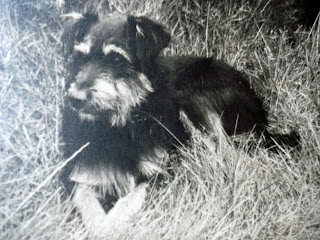One definition says that it clearly has nothing to do with metre, rhyme, image, mood, or meaning, but rather like your Vicar's Sunday Sermon, it is 'Things said in a peculiar voice'.
American poet Robert Frost claimed that poetry is 'what is lost in translation'.
Another more concrete definition says....
'In literature
prose written
with line breaks
inserted at random
intervals'.
A character in one of Trollope's novels claims that poetry is 'stuff that doesn't go right across the page'. I rather like this definition.
I am known occasionally to write poetry myself, a few examples of which I have published on this page, and as they never go 'right across the page'; I 'know' they are pukka poetry.
However, I would never recite any of my poems in that silly voice that so many 'poets' use; nor would I adopt the pompous pose!
Back in the 60's, I got to know a few students from the Theological College that was physically connected to my school. These young men were taught how to deliver their sermons (using that silly voice), and were actively encouraged to practice in front of a mirror. I often wonder if young poets do the same?









I do so like that
ReplyDeleteDefinition
And have tried myself
Once upon a time
I tried silly doggerel rhyme
Clever it was not
Just a lot
Of claptrot.
I remember hearing some well known, NZ wide, young poets back in the 70s, reading their own poetry. All trying to be nonchalant, strolling up and down the stage. Marvellous stuff
My old chum Jock Veitch's mother (I don't know her name) was one of NZ's most respected female poets. You may know about her!
DeleteShe was Ishbel Veitch.
DeleteI like Trollope's character's definition of poetry.
ReplyDeleteI think of the silly voice as a hectoring voice.
I too like that definition, it fits the bill.
DeleteThe poets in my old writing group, fed up with what they deemed 'nonsensical rubbish' that kept winning a certain poetry competition, each picked a word at random from the dictionary, put them together in lines and sent it off. They came in second.
ReplyDeleteI've heard of similar offerings, nothing surprises me.
DeleteMy favourite poet is Peter Sellers doing 'A Hard Day's Night' in that wonderful Richard 111 type accent!
ReplyDeleteI seem to remember that some 'famous actor' did a similar job with Roget's Thesaurus.
DeleteA poet, I am not
ReplyDeleteIt's all a load of rot
I try from time to time
But can't get it to rhyme
I think I'll just give in
And pour another Gin
Don't give up just yet,
Deleteyou'd make a wonderful po-ette.
A modern composer (might have been John Cage) - think he composed 4'33'' - said 'I have nothing to say and I am saying it and that's poetry'. No doubt somebody will put me right.
ReplyDeleteIt could also have been Warhol or Marcel Duchamp.
DeleteI've never been all that fussed about poetry .... probably because we had to learn ' Today we had naming of parts ' in school .... that certainly didn't endear me to it ! I know ..... I'm a philistine !!!! XXXX
ReplyDeleteThats Today we have naming of parts .... I didn't learn it very well !!! XXXX
DeleteI do read Dylan Thomas and W B Yates quite regularly, but not too many others.
DeleteMost poetry bores me x
ReplyDeletePerhaps that's a sign of bad poems. Some poems, such as Gunga Din, I could read every day.
DeleteThe loud reciting poetry, I don't mind listening to. Doing it myself is a solid No. The contest to how robust a person can elevate their voice to give their words more depth, is stage poetry.
ReplyDeleteI feel there is a difference between the stage and the sublime atmosphere of the brain quietly reading.
The only time I recite poetry (?) these days is on the evening of July 27th (Belloc Night) when I read one of Belloc's 'Cautionary Tales' to the children, when I try to be as dramatic and descriptive as possible.
DeletePoetry is prose that touches the soul of the reader.
ReplyDeleteHi Hippo! Your description sounds far too sensible.
Delete